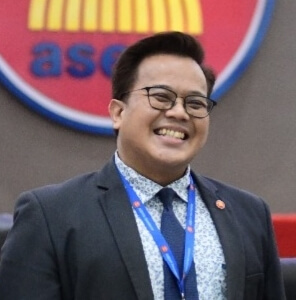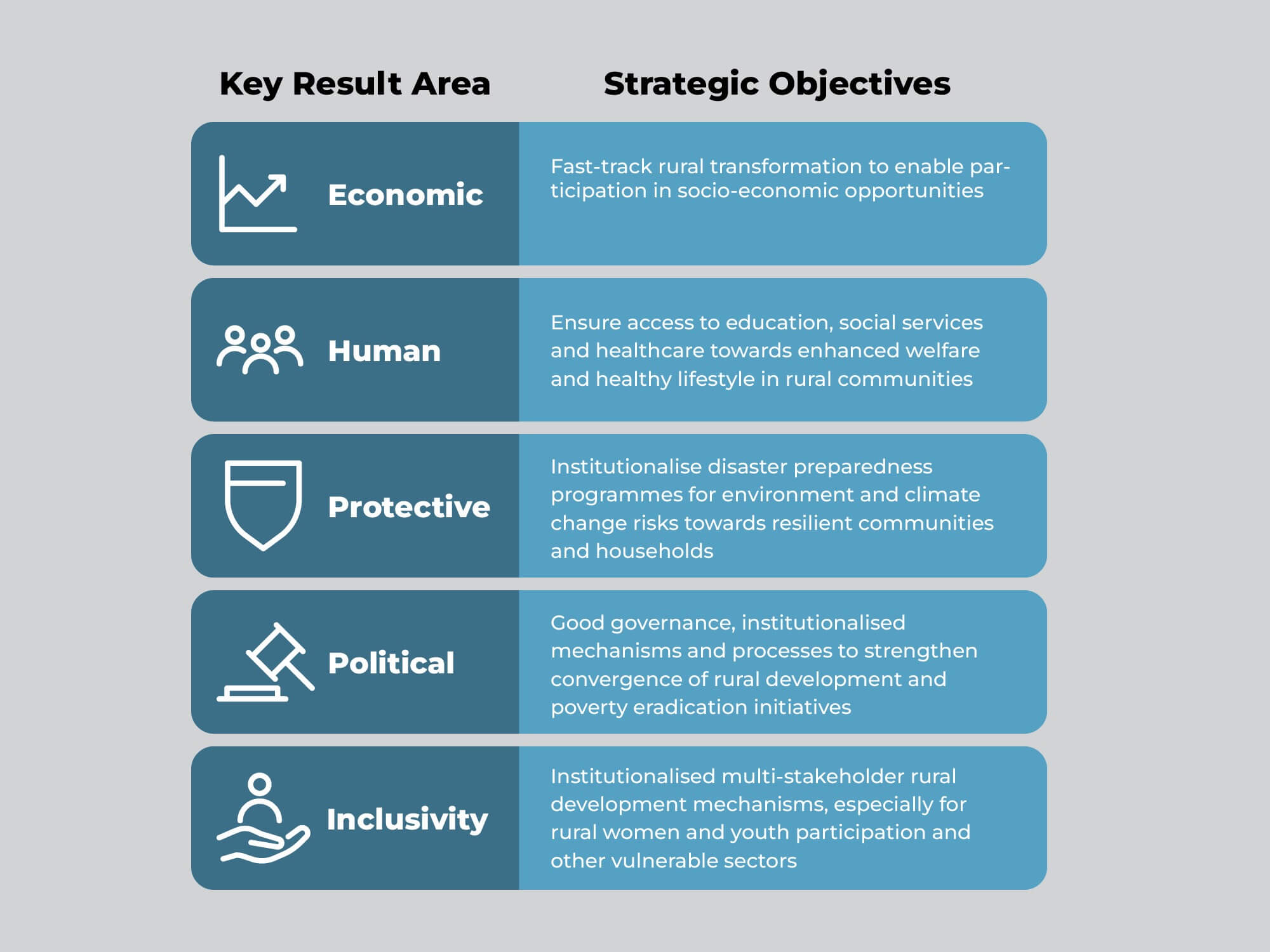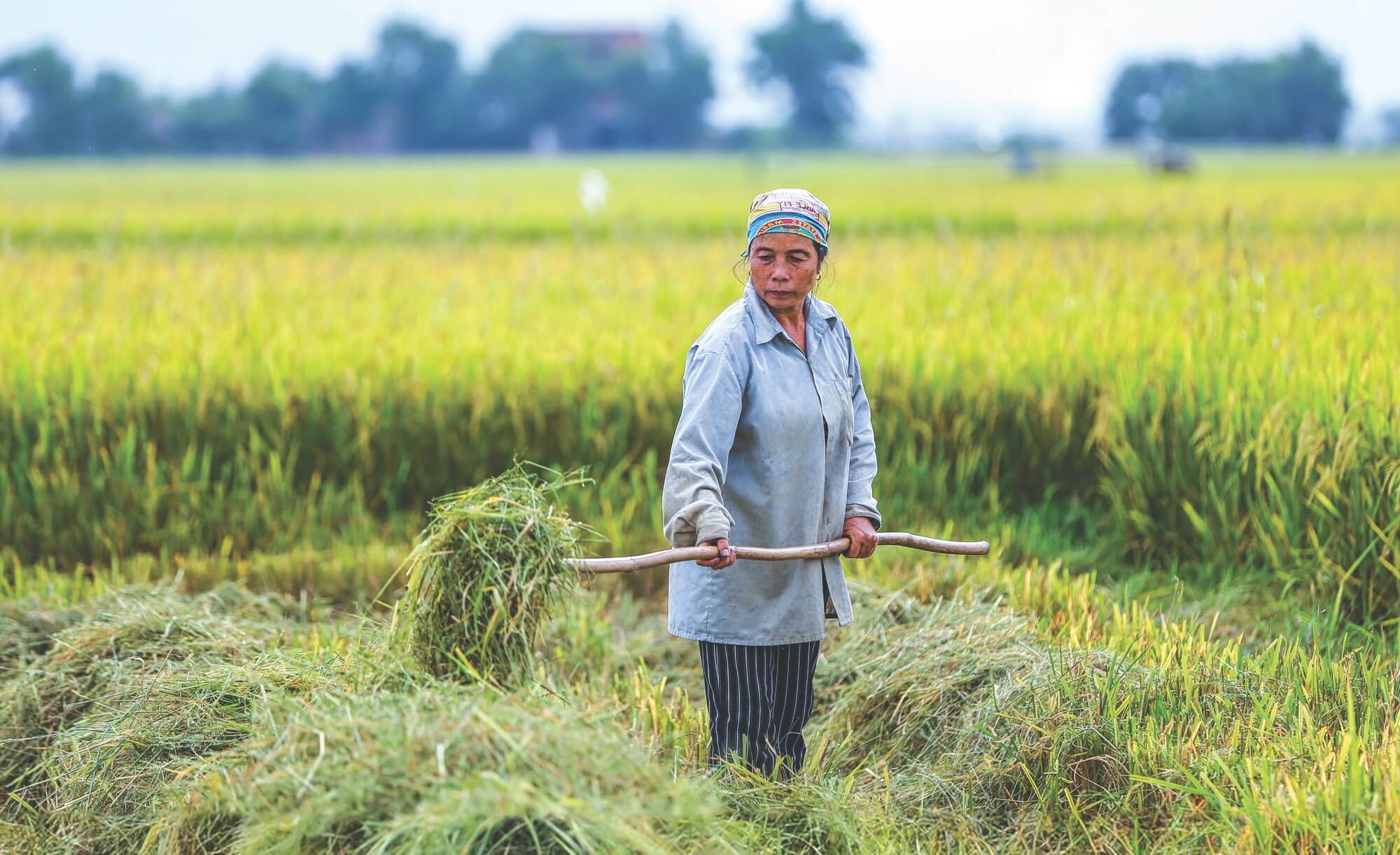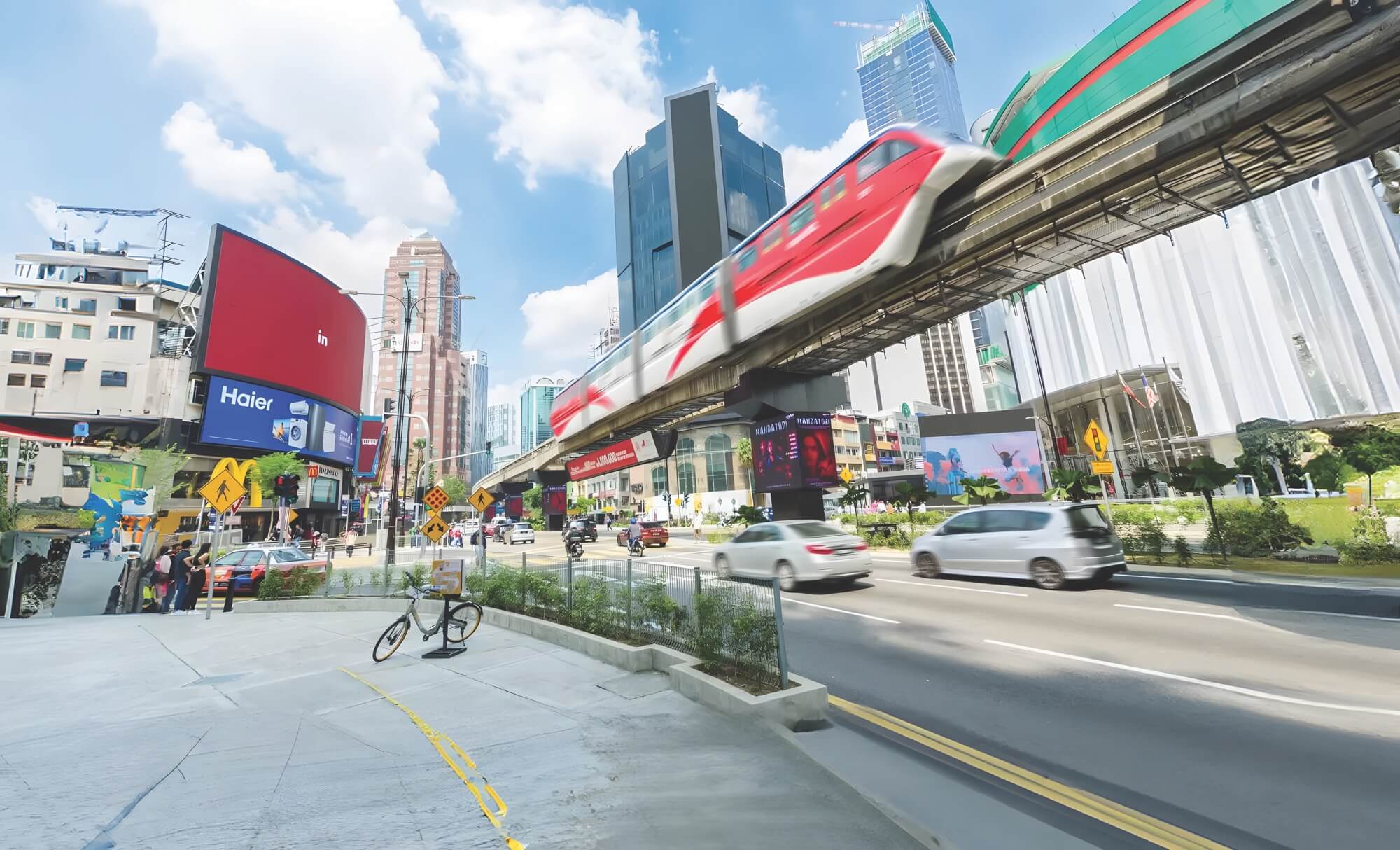




ASEAN has made great strides in reducing extreme poverty. The region’s prospects for growth signal that the tide is turning after the COVID-19 pandemic. The International Monetary Fund forecasted that economies in ASEAN will see growth of 4.2 per cent in 2023 and 4.6 per cent in 2024.
On the other hand, poverty reduction in the ASEAN Member States remains uneven, with some countries experiencing slower reduction than others. In countries with larger rural populations and ethnic minorities, many are still being left behind.
ASEAN aims to reduce extreme poverty and protect people from falling back. Regional cooperation on poverty alleviation also seeks to foster an enabling policy environment that addresses the multiple dimensions of poverty and ensures that the region’s economic growth uplifts the people’s overall well-being.
Poverty and rural development
ASEAN’s cooperation on rural development and poverty eradication commenced in 1997 by adopting the Ministerial Understanding on ASEAN Cooperation in Rural Development and Poverty Eradication on 23 October 1997. Such cooperation builds on Article 1 of the ASEAN Charter, which states that one of ASEAN’s purposes is to “alleviate poverty and narrow the development gaps within ASEAN through mutual assistance and cooperation.” Since then, the cooperation has been guided further by the ASEAN Community Vision 2025 and the ASCC Blueprint 2025, with the latter aiming to establish “an inclusive ASEAN Community” that improves people’s quality of life and addresses the barriers to it.
The ASEAN Ministers’ Meeting on Rural Development and Poverty Eradication (AMRDPE) oversees regional cooperation on poverty alleviation. It is composed of ministers responsible for rural development and poverty eradication in all ASEAN Member States. The meeting is supported by a subsidiary body, the ASEAN Senior Officials Meeting on Rural Development and Poverty Eradication (SOMRDPE).
During the pandemic, the AMRPDE issued a Joint Statement during the Special Meeting on Reducing Poverty and Building Resilience: Towards COVID-19 Recovery held on 19 August 2020 via video conference. The ministers underscored that in the ASEAN region, “the poor primarily reside in rural areas where access to health services, social protection, education, infrastructure is limited while the poor in urban settings mostly live in congested informal settlements with precarious socio-economic conditions and limited protection.”
As such, the AMRDPE resolved to protect the poor and vulnerable from the impacts of the COVID-19 pandemic. This commitment included undertaking initiatives to invigorate rural livelihoods, ensuring that local rural economies and food systems are moving without disruption, and ensuring a pro-poor, inclusive, gender-responsive, and climate-responsive approach to recovery.
At the 12th AMRDPE on 26 November 2021, the ministers endeavoured to “review and assess relevant policies and programmes towards improving the economic and social living conditions of poor people in all settings, and empowering the poorest of people living in rural areas to benefit from development.” The virtual meeting was guided by the theme, “Accelerating Recovery and Strengthening Resiliency of ASEAN for Sustainable Rural Development and Poverty Eradication.”
On 22 November 2023, the 13th AMRDPE convened in Singapore with the theme “Strengthening Community-based Approaches and Social Protection for Poverty Alleviation.” Significantly, the AMRDPE agreed to further strengthen community-based approaches in rural and urban communities “in the design, implementation and assessment of social protection measures that target the poor and vulnerable, as well as empowering measures that enliven local enterprise development in rural and urban areas including nano-, micro-, and small enterprises.”
The SOMRDPE developed the ASEAN Framework Action Plan on Rural Development and Poverty Eradication 2021- 2025 to operationalise ASEAN’s rural development and poverty eradication agenda. The work plan recognises that “sustainable rural development is vital to the economic, social and environmental viability of nations, the same way that it is essential for poverty eradication as global poverty is overwhelmingly rural.” It recognises that poverty reduction targets will be met if poverty in rural areas is reduced, and calls for “rural transformation” as essential to poverty reduction.
The implementation of the work plan intends to contribute to the overall goal of improving the economic and social living conditions of people experiencing poverty in rural areas. It is also designed to assist the poorest groups in gaining benefits from development. The work plan has identified five key results areas and five strategic objectives.
ASEAN strives to highlight the gender aspects of rural development and poverty alleviation efforts. This involves identifying the presence of women and their roles in local community development and agricultural value chains and promoting women’s economic empowerment and entrepreneurship. Central to this strategy is acknowledging, reducing, and redistributing the burden of unpaid care and domestic work, which frequently result in time poverty for many women.

Milestones
During Indonesia’s term as ASEAN Chair in 2024, the ASEAN Leaders adopted the Joint Statement on the Establishment of an ASEAN Villages Network at the 42nd ASEAN Summit held in May 2023 in Labuan Bajo, Indonesia. The network aims to provide a platform for a whole-of-community approach to ensure inclusive participation. Through the network, voices from villages are heard and can contribute to and benefit from development. The network likewise facilitates collaboration and cooperation among villages to enable villages to fast-track rural transformation. The network held its first meeting on 25-26 July 2023 in Yogyakarta, Indonesia.
Another landmark framework is the ASEAN Master Plan on Rural Development adopted by the AMRPDPE. The master plan underscores the critical linkages between poverty and the state of development in rural areas. Observing that poverty persists in rural areas vis-à-vis fast-changing development contexts, the master plan advocates for inclusive and innovative approaches towards promoting sustainable and equitable development, where “no one is left behind.” The master plan unpacks the nexus between poverty, agriculture, agroecology, food and nutrition, and rural development and recommends Territorial Rural Development.
A key strategy to ensure effective stakeholder engagement is the annual conduct of the ASEAN Public-Private- People Partnership Forum on Rural Development and Poverty Eradication. Annually organised by the SOMRDPE, the forum provides a platform for learning how to strengthen community approaches that contribute to inclusive rural development to reduce poverty. The recommendations arising from the forum are submitted to the annual SOMRDPE Meeting for adoption.
The AMRDPE biennially organises the ASEAN Leadership Awards on Rural Development and Poverty Eradication to recognise the efforts and contributions of civil society organisations, social enterprises, and the private sector to rural development and poverty eradication. The 6th Awards were held on 21 November 2023 in Singapore and given to 21 awardees from all ASEAN Member States.
Partnership and stakeholder engagement have been a critical feature of ASEAN’s cooperation on rural development and poverty eradication. Through the abovementioned platforms, SOMRDPE continues to engage small farmers cooperatives, rural people’s organisations, rural women, and civil society organisations. The SOMRDPE’s long-standing partner and ASEAN-affiliated entity, the Asian Partnership for the Development of Human Resources in Rural Asia or AsiaDHRRA, facilitates these grassroots engagements.
Achieving the Sustainable Development Goals
The ASEAN Ministerial Dialogue on Accelerating Actions to Achieve the Sustainable Development Goals (SDGs) has been regularly convened through the efforts of the SOMRDPE. The ministers and heads of agencies in charge of national development planning and SDGs implementation have an opportunity to discuss cooperation on achieving the SDGs and the roles of national development planning agencies in supporting the work of ASEAN.
The 2nd ministerial dialogue was held on 31 March 2023 in Bangkok, Thailand. The dialogue underscored the cross-section between poverty and climate change and how it impinges on the lives and livelihoods of women, persons with disabilities, older persons, vulnerable groups, local communities, children, and the youth. The dialogue resolved to accelerate actions at the national and ASEAN levels to address, among others, megatrends that impact the attainment of the SDGs, including Goal 1 on poverty. The dialogue also agreed to enhance regional cooperation and partnership to ensure no one or no country is left behind.
The SOMRDPE is also instrumental in convening the ASEAN Forum on SDGs with National Development Planning Agencies, which was inaugurated on 8 July 2019 at the ASEAN Secretariat, Jakarta, Indonesia. The forum provides an avenue for representatives from national development planning agencies or SDG coordinating agencies, ministries in charge of rural development and poverty eradication, and other stakeholders to exchange views and discuss strategies for accelerating actions towards the attainment of the SDGs.
Lastly, the SOMRDPE also initiated the convening of the ASEAN-China-UNDP Symposium on SDGs. The symposium provides a platform for ASEAN, China and the UNDP to deliberate on priority action points in advancing the poverty agenda of the ASEAN Vision 2025 and the SDGs. The 6th symposium produced the policy brief entitled “Reducing Inequality in the Decade of Action to Achieve the SDGs and Accelerate Post-Pandemic Recovery”.
Improving people’s well-being
As ASEAN embarks on landmark initiatives—the completion of the ASEAN Community Vision 2025 and the development of the ASEAN Community Vision 2045—it is imperative to fully articulate the regional agenda on eradicating extreme poverty in the region in the next twenty years. This agenda finds solid footing in ASEAN’s ongoing cooperation on rural development and poverty eradication. Moving forward, ASEAN is steadfastly committed to ensuring that prosperity is equitably shared among all its peoples, which necessitates translating the region’s economic growth into tangible improvements in the well-being of every individual.
Key documents on poverty alleviation and rural development may be accessed at the following:
Joint Statement of the ASEAN Ministerial Meeting on Rural Development and Poverty Eradication: https://asean.org/wp-content/ uploads/2021/09/AMRDPE-Joint-Statement-on-COVID-19_adopted_9Nov2020.pdf
ASEAN Framework Action Plan on Rural Development and Poverty Eradication 2021-2205: https://asean.org/book/asean-framework-action-plan-on-rural-development-and-poverty-eradication-2021-2025/
Joint Statement on the Establishment of an ASEAN Villages Network: https://asean.org/wp-content/uploads/2023/05/12-ASEAN-Leaders- JS-on-ASEAN-Villages-Network_adopted.pdf
ASEAN Master Plan on Rural Development: https://asean.org/wp-content/ uploads/2022/11/34-ASEAN-Master-Plan-on- Rural-Development-2022-2026.pdf








